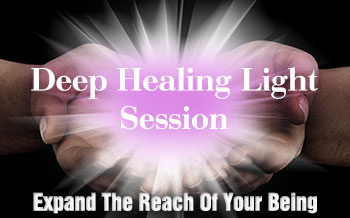Contradictions of Spirit
through David NelmesThere are undeniable truths in the Bible that show our God as a god who loves unconditionally, however, there are many contradictions in the spirit of how our God of love has otherwise behaved.
If I were to say there are contradictions in the Bible, it's likely that some people would not listen to anything I have to say and would most likely defend the Bible to high heaven...so to speak, so I'm not going to say that. What I am going to say is this, 'There are undeniable truths in the Bible that show our God as a god who loves unconditionally'.

"There are undeniable truths in the Bible that show our God as a god who loves unconditionally, however, there are many contradictions in the spirit of how our God of love has otherwise behaved."
I am going to help you see the true face of God and we will never leave the words that most Christians revere...but in doing so, I am also going to show you a God who has already forgiven you and has never been angry and is not going to punish you, no matter what you believe. I am going to show you where the Bible makes these things clear..and then, you can determine for yourself where the contradictions may be and why they are there.
For starters, my all time favorite scripture is 1Jn.4:18 which states "Perfect Love casts out fear". This statement makes it clear that the mere presence of love should totally annihilate fear. In the same way as turning on a light switch has the result of making the darkness simply vanish, so does love make fear vanish. Love and fear cannot exist at the same time, in the same place or be used together in any way, since one would annihilate the other in the same way that light annihilates darkness.
Likewise, in 1Jn.1:5 it states "God is light, and in him there is no darkness at all.". This confirms the spirit behind the truth that love and light are identical in the same way that darkness and fear are identical.
If we are to believe that God is love, then we have to also believe that God has no fear and cannot use fear or manipulate it in any way because it simply does not exist where he is. God cannot use fear or be associated with it in any way and still love unconditionally. Since fear and darkness cannot exist where there is love and light, God doesn't even know what those things are. They are foreign to him and they do not even exist for him to use or control.
Of course you might say there are so many other places where the Bible makes it clear that God uses fear and war and death and all kinds of darkness as weapons against his enemies....but I won't list those instances here for you. You find the places yourself where other areas of the Bible contradict this concept of a God that does not use fear or darkness, and when you see the contradiction in the spirit of how our God of light and love is otherwise portrayed, ask yourself this...which one is more likely to be true of a unconditionally loving God.
Moving on, a wonderful little nugget of God's true image fell into my lap recently...and it was in the Bible all along and nobody seemed to see it. This nugget says God was never upset at us. This nugget says that we are the ones who thought we were sinners and guilty before God, but that God is not the one seeing it this way...only we are seeing it this way. We have written volumes of writings and created multiple beliefs to reinforce the concept that God is the punisher of us...but the Bible clearly shows how it is God who is all forgiving and that it is only us who believe we have sinned and are unworthy of his blessings.
Where is this little nugget, take a look at Luke 15: 11-24
A man had two sons, and the younger son said to his father, 'Father, give me the share of your estate that should come to me.' So the father divided the property between them.
After a few days, the younger son collected all his belongings and set off to a distant country where he squandered his inheritance on a life of dissipation.
When he had freely spent everything, a severe famine struck that country, and he found himself in dire need. So he hired himself out to one of the local citizens who sent him to his farm to tend the swine. And he longed to eat his fill of the pods on which the swine fed, but nobody gave him any.
Coming to his senses he thought, 'How many of my father's hired workers have more than enough food to eat, but here am I, dying from hunger. I shall get up and go to my father and I shall say to him, "Father, I have sinned against heaven and against you. I no longer deserve to be called your son; treat me as you would treat one of your hired workers."'
So he got up and went back to his father. While he was still a long way off, his father caught sight of him, and was filled with compassion. He ran to his son, embraced him and kissed him.
His son said to him, 'Father, I have sinned against heaven and against you; I no longer deserve to be called your son.'
But his father ordered his servants, 'Quickly bring the finest robe and put it on him; put a ring on his finger and sandals on his feet. Take the fattened calf and slaughter it. Then let us celebrate with a feast, because this son of mine was dead, and has come to life again; he was lost, and has been found.' Then the celebration began.
Look closely. The Father in this story represents our heavenly Father...and he wasn't upset. He wasn't upset that the son left in the first place and he wasn't upset about anything the son had done before returning to him. The father never called him a sinner and never said he was unworthy...but the son felt guilty and had these feeling himself...but this had nothing to do with how this father felt...or how our Father feels about us.
As soon as the father saw the son returning, he was simply filled with joy because his unconditional love could create no other feeling. The father did not need a repentance and did not even know at this time that the son was feeling guilty and remorseful. This didn't matter to the father because the father knew that nothing his son had done really mattered. The only thing that matters is that the son has returned.
After the son returned and expressed his guilt and expected the worst, it says, But the father.... It says 'But'. It says that regardless of what crazy notion the son had about himself, the father was not looking at his son this way. The Father was not upset, never was and was simply overjoyed to have his son return.
Separate from the Father, we are lacking and this creates a situation where we do not feel good about ourselves. Our lives are a constant struggle and this also leads us to experience and utilize guilt...but this is of our own making. Our unconditionally loving God, like the father in this story, never required our guilt or repentance. He is just happy to have his son back. That is unconditional love.
The sons repentance was not required by the father, however, the sons repentance or re-thinking helped him stop digging a deeper hole for himself and helped him see that he had another choice...he could return to his father. Repentance is an internal choice to change and improve your way of being. This action might make you feel as though you are now worthy to approach God, but God does not require it. You are always worthy to approach God.
Also, take notice...the Father did not demand the son return ...or else. The father did not threaten the son to severe or eternal punishment when he left, nor did he hold it over his son's head while the son was gone. Likewise, the son did not return to his Father because he was given an ultimatum, but because he knew his Father loved him and he knew it's where he belonged...and even though the son had feelings of guilt mixed in as well, this had nothing to do with the unconditional love of his Father and the rejoicing that followed.
Of course you might say there are so many other places where the Bible makes it clear that repentance is required and that punishment will follow swiftly without it....but i won't list those instances here for you. You find the places where other areas of the Bible contradict this story and when you see the contradiction in the spirit of how this father acts and how our Heavenly Father is often portrayed as acting, ask yourself this...which one is more likely to be true of a unconditionally loving father.
Now let's look at your sins that never were. Take a look at these statements of Jesus.
Luke 5: 20 Seeing their faith, he said to him, "Man, your sins are forgiven you."
Mark 2: 5 When Jesus saw their faith, he said to the paralytic, "Son, your sins are forgiven."
Luke 7:48-49 Then Jesus said to her, "Your sins are forgiven."
Do you notice a common theme. These statements are not actions. These statements are affirmations. He is not saying 'I forgive you', followed by an action of forgiveness, he is simply stating a truth that they do not know. He is telling them they are already forgiven. According to the Old Testament law, a sacrifice was required for all forgiveness, but Jesus was still alive, so this has nothing to do with the belief that later arose that Jesus was a blood sacrifice to appease a God who only loves conditionally through the shedding of blood and the instilling of fear. In addition, he never once said you must ask him for forgiveness. he just said, "Your sins are forgiven"
Of course you might say there are so many other places where the Bible makes it clear that you must work for and meet a requirement for forgiveness....but i won't list those instances here for you. You find the places where other areas of the Bible contradicts those statements and when you see the contradiction in the spirit of how Jesus was totally forgiving without even being asked and how other areas of the Bible place many conditions upon this being so...you decide which one is more likely to be true of a unconditionally loving God.
While on the subject of Jesus, here is another wonderful truth from Hebrews 13:8, "Jesus Christ is the same yesterday, today and forever.". When I read this, it clearly tells me that the unconditionally forgiving man hanging on the cross will always forgive unconditionally. This sentence tells me about a man who was not upset at me, who does not blame me and who embraces the concepts of peace and love at all times.
Of course you might say there are so many other places where the Bible makes it clear that Jesus will return as a slayer of men, or that he requires my obedience in order to forgive me....but I won't list those instances here for you. You find the places where other areas of the Bible contradicts this statement and when you see the contradiction in the spirit of how Jesus was totally forgiving then and is supposed to always be, as compared to what is later revealed about him in the Epistles and the Book of Revelation...you decide which one is more likely to be true of a unconditionally loving Jesus.
Another great set of truths is found in Luke 6:27-38
But I say to you that hear, Love your enemies, do good to those who hate you, bless those who curse you, pray for those who abuse you. To him who strikes you on the cheek, offer the other also; and from him who takes away your coat do not withhold even your shirt. Give to every one who begs from you; and of him who takes away your goods do not ask them again. And as you wish that men would do to you, do so to them.
If you love those who love you, what credit is that to you? For even sinners love those who love them. And if you do good to those who do good to you, what credit is that to you? For even sinners do the same. And if you lend to those from whom you hope to receive, what credit is that to you? Even sinners lend to sinners, to receive as much again. But love your enemies, and do good, and lend, expecting nothing in return; and your reward will be great, and you will be sons of the Most High; for he is kind to the ungrateful and the selfish. Be merciful, even as your Father is merciful.
Judge not, and you will not be judged; condemn not, and you will not be condemned; forgive, and you will be forgiven; give, and it will be given to you; good measure, pressed down, shaken together, running over, will be put into your lap. For the measure you give will be the measure you get back.
There's a lot in there, but let's first look at the overall picture. This message is saying it is best for you to always do the better thing and be loving, be forgiving and be giving. Do you think Jesus is recommending you do things that he himself has not mastered? Therefore, if Jesus followed his own teachings, would he do anything to an enemy who curses him and abuses him other than to simply love them? But he wouldn't just stop there and accept the punishment. Wouldn't he also go beyond that and actually be kind and good to his enemies?
Of course you might say there are so many other places where the Bible makes it clear that Jesus called somebody a traitor, or where he killed a tree or where he said he has come as a sword or where he will abandon billions to eternal pain and suffering for not knowing who he is ....but I won't list all those instances here for you. You find the places where other areas of the Bible contradicts this set of Jesus' teachings and when you see the contradiction in the spirit of how Jesus taught us to behave and how he and our father is otherwise said to behave...you decide which one is more likely to be true of a unconditionally loving God and Jesus.
While looking at the passage above, there is something else I would like to say. In Matt. 25: 34-40, Jesus basically says "What ever you do to any one, you also do to me." This is true because we are all one spirit. There is no 'me' and there is no 'you', because there is just one spirit of which we are all a part.
In the statement above where it says that you are judged if you judge or you are forgiven if your forgive, it is because anything you do for anybody else, you are also doing for yourself. You are separate from nobody. Jesus knew this.
Read the scripture above again and know that it is not referencing a retribution from God, but only from yourself if you do not forgive, or if you condemn or if you judge. If you hate somebody else, you are also hating yourself. If you curse somebody, you are also cursing yourself, If you love some one, you are also loving yourself. If you forgive some one, you are also forgiving yourself. If you judge nobody, neither are you judging yourself. We are not separate. Everything that you do to anyone, affects you as much as it affects them.
Of course you might say there are so many other places where the Bible talks about how we are separate and how we have the right to destroy our enemies...Gods enemies....but I won't list those hundreds of instances here for you. You find the places where other areas of the Bible contradicts this set of Jesus' teachings were he so clearly indicates how everyone...including himself, should treat every other living person and you decide which one is more likely to be true of a God who is unconditionally loving.
All the examples above show contradictions of spirit in how God is portrayed and in how he behaves with respect to how he requires us to behave. These items also show a loving and forgiving Jesus who is never supposed to change, yet Jesus is later written to lead a heavenly war against people of earth and slaughter billions.
How could you possibly believe these contradictions of spirit are true? How is it that religions the world over have simply accepted that our loving God can murder? To believe that would also mean you believe that darkness remains in the room when the lights are on. This is a contradiction in the spirit of his teachings.
The world has painted a picture of God where most people believe God thinks like us and has the same character flaws as we do. Most people believe he has a split mind the way we do and sets conditions and requires retribution and demands justice. People think he changes his mind and gets upset....but if you look carefully at the Bible, you will find small segments of truth that made it through the ages without being totally obscured by the tampering concepts of man.
Man has a mind that believes in duality. Basically this means that our conclusions are based upon what we think is important or true at that time. Since we are not all knowing, we perceive things, and even what we do perceive comes from a very limited perspective. Nothing we do or think is absolute and everything is split and fragmented by our own feelings and beliefs.
Our all-knowing, all-loving, unchangeable Father does not share the duality and insecurity in thinking that we do. What this means is that He cannot love at times and hate at other times. He cannot embrace peace at times and send fear at other times. He cannot create life at times and destroy life at other times. He is only one thing at all times and He can only do one thing at all times and that is to love us unconditionally.
Duality also supports the belief that God is separate from us, but he is not. When Jesus said "The Father and I are one.", this wasn't a declaration of some exclusive right of his. He was expressing what he knew was true for himself and all people. God is not separate from us. God is not judging us. God is not making demands from us and the reason this is true is because we are a part of God and for him to do any of those things to us, he would also have to do them to himself.
You and the Father are one. Open your heart to see things differently. Open your mind to see things more clearly. Open your life to a loving God.
 David Nelmes - David considers it a wonderful blessing that his insight and writings can provide opportunities for others to see things from perspectives they had not considered before.
David Nelmes - David considers it a wonderful blessing that his insight and writings can provide opportunities for others to see things from perspectives they had not considered before.
His base beliefs are founded on the principles established through studying "A Course In Miracles", which has helped him to pursue Gods truths with an open mind that is willing to see what God would have him see.
You can visit David's facebook page at: Deep Healing Light on Facebook
To contact David, go to our Contact Form
This article Copyright ©2006 David Nelmes
Share / Bookmark This Article:
Article Reproduction / Reprint Rights
This article may be reproduced without further need of approval. Adhering to the following guidelines will be helpful and appreciated....
- Retain the authors bio and website contact information provided with the article.
- Send a courtesy e-mail as a FYI to let us know where the article will appear.
- Copy all images to your own server. By default, all images will be loaded through our server.
For your convenience, 'copy and paste' html and e-mail versions of this article are available.



